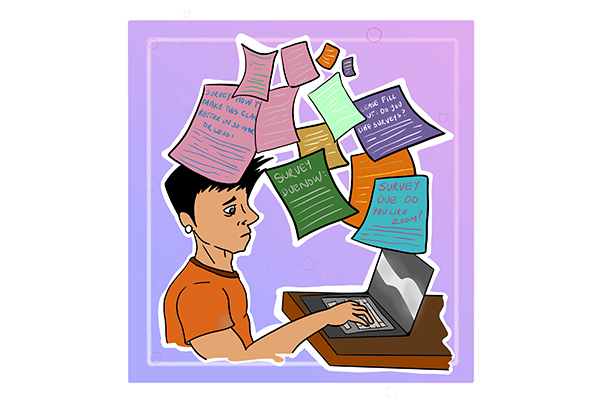Some professors administered midsemester surveys to gauge students’ feelings about the semester before making changes to accommodate for current circumstances.
Kathleen Harrison, communications manager in the Office of the Executive Vice President and Provost, said UT administration did not mandate professors administer midsemester surveys.
Nutritional sciences lecturer Michele Hockett Cooper said the College of Natural Sciences administration encouraged staff to administer a survey, but did not require it.
“I think it's a smart idea to do a midsemester check in with students to gauge how they're liking the content, how the pace of the classes is going and if they feel engaged with the material or not,” Cooper said.
Associate astronomy professor Keely Finkelstein said her surveys were anonymous, and when looking at the average responses she noticed students were struggling more than normal.
“There are some things that I know are probably lower than normal — (it’s different) being in a large class and being online,” Finkelstein said. “(For example), a lot of students are saying the social belonging aspect is hard and it feels low for them.”
Public health junior Lawrence Robinson said students should have more control over their learning and the midsemester surveys administered in his classes gave him the opportunity to express this belief.
“Especially (now), students need to have more control over their education and the flow of it,” Robinson said.
Finkelstein said some students came to her to provide feedback and ask for help about certain aspects of her class before administering the midsemester survey, specifically regarding working with peers.
“(I’ve been) reminding the whole class … we're working together in groups to try and practice these problems now because this is how … we learn the material,” Finkelstein said.
Cooper said 750 out of the 1,000 students in her classes took the survey. With the feedback Cooper received from the survey, she changed aspects of the syllabus to benefit students, including taking out work students indicated was overwhelming.
“Students said … ‘We can't watch the lecture and read the chapter and attend the live class, it's just too much work,’” Cooper said. “We took all of those prerecords out, and we are making those chapters optional.”





















